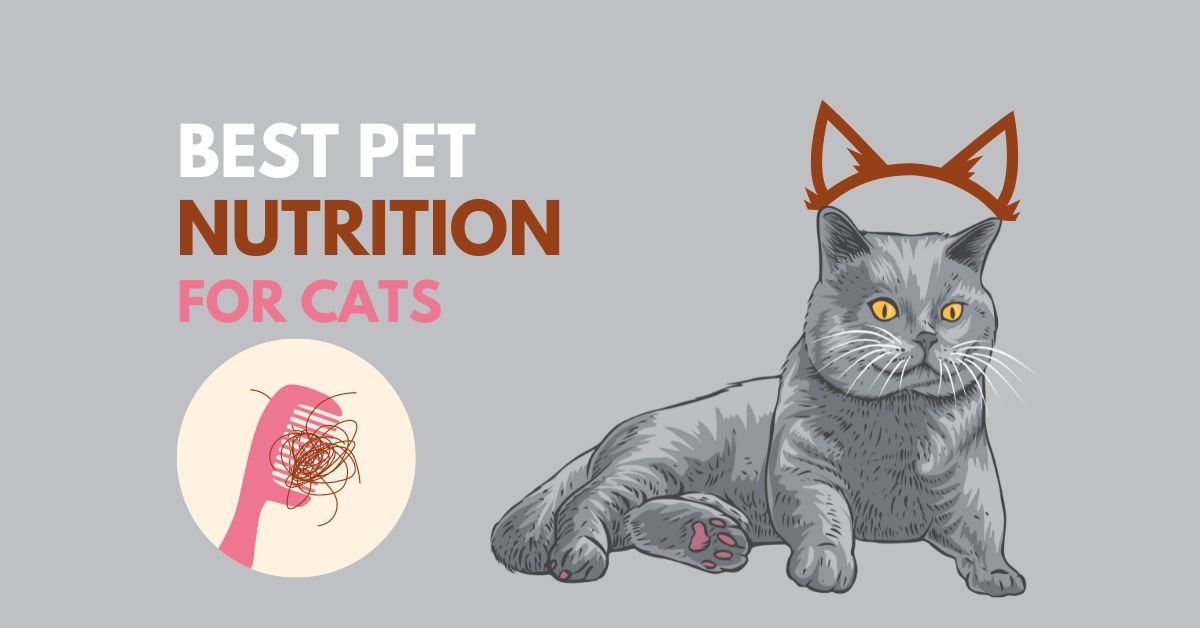Cats are known for their luxurious and shiny coats, but it can be a sign of a deeper issue when they lose hair. Hair loss in cats can be caused by various factors, ranging from allergies and stress to infections and skin disorders. This article will discuss the most common causes of cat hair loss and how you can treat it at Home.
How to Treat Cat Hair Loss at Home?
To treat cat hair loss at Home, address potential causes like allergies, stress, or infections. Switch to a hypoallergenic diet, reduce stress by creating a calm environment, and groom your cat regularly. If issues persist, consult your vet. Here are some steps to treat cat hair loss at home.
- Identify the Cause: Observe your cat for signs of itching, scratching, or stress. Consider any recent changes in their environment or diet.
- Switch to a Hypoallergenic Diet: If allergies are suspected, transition your cat to a hypoallergenic diet and remove potential allergens from your home.
- Create a Stress-Free Environment: Provide a quiet, safe space for your cat. Maintain a consistent routine and offer plenty of affection.
- Check for Infections: Look for signs of skin infections, such as redness, scaling, or patches of hair loss. If an infection is suspected, consult your vet for proper diagnosis and treatment.
- Treat for Fleas and Skin Disorders: If fleas or skin conditions like seborrhea are suspected, use appropriate flea treatments or medicated shampoos as recommended by your vet.
- Consult a Veterinarian: If home remedies don’t help or if the hair loss persists, seek veterinary advice for a thorough diagnosis and tailored treatment plan.
How do you stop cat hairs?
- Check for fleas and other parasites: Fleas and other parasites can cause itching and scratching, leading to hair loss. Regularly treating your cat for fleas and other parasites can help prevent hair loss.
- Provide a balanced diet: A balanced diet with adequate amounts of vitamins, minerals, and essential fatty acids is vital for maintaining a healthy coat and skin. Talk to your veterinarian about the best diet for your cat.
- Reduce stress: Stress can cause hair loss in cats, so try to create a calm and stable environment for your cat. Provide plenty of love and attention, and consider using pheromone sprays or diffusers to help reduce stress.
- Brush your cat regularly: Brushing your cat regularly can help remove loose hair and prevent matting. This also promotes circulation, which can help to keep your cat’s skin and coat healthy.
- Address underlying medical conditions: If your cat has a medical condition causing hair loss, such as an infection, skin disorder, or hormonal imbalances, it’s essential to seek veterinary treatment. Treating the underlying condition can help to reduce hair loss and promote hair regrowth.
Can Cats Recover from Hair Loss?
Yes, depending on the underlying cause, we can recover from hair loss. If the hair loss is due to a treatable condition such as an infection, skin disorder, or stress, the hair may regrow once the issue has been resolved. However, suppose the hair loss is due to an underlying medical condition, such as hormonal imbalances, certain diseases, or certain types of cancer. In that case, the hair may be more difficult to regrow.
In these cases, treatment may involve managing the underlying condition, and hair regrowth may be limited. If your cat is experiencing hair loss, it’s essential to consult a veterinarian for a diagnosis and appropriate treatment plan.
Various factors can cause hair loss in cats, and it’s essential to determine the underlying cause to provide effective treatment. If your cat is experiencing hair loss, you should take them to the vet for a diagnosis.
In the meantime, provide a safe and quiet environment, switch to a hypoallergenic diet, and remove any potential allergens from your Home. Taking these steps can help your furry friend feel better and regain their luxurious coat.
